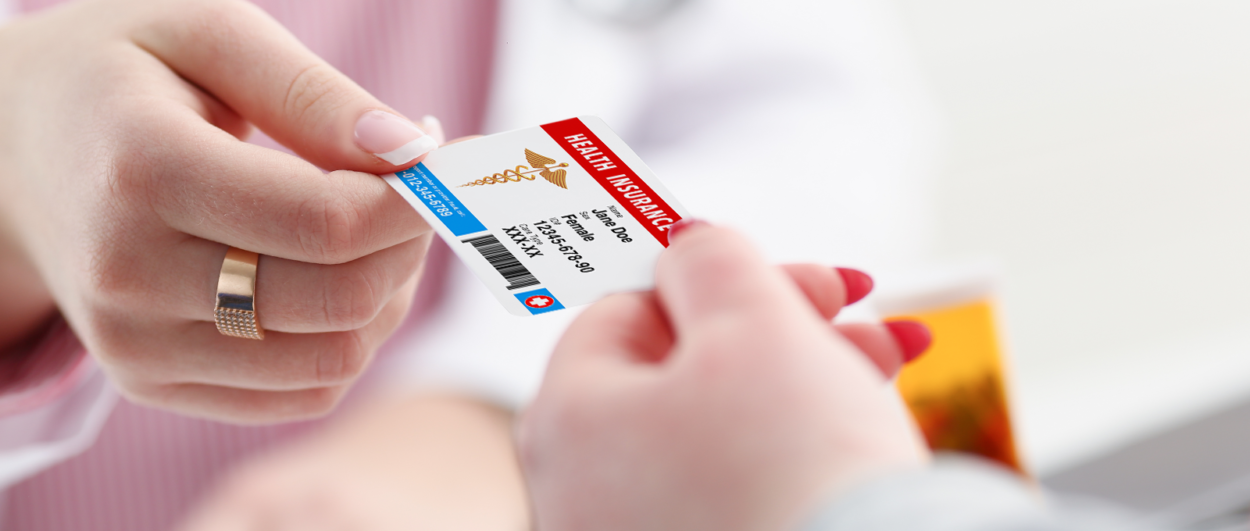The team at HealthLock is committed to helping you protect the security of your healthcare information. But while we can monitor your bills for signs of fraud, there are some actions only you can take to make sure thieves don’t gain access to your data. That’s why we’ve created this series—to help you take the steps necessary to guard your own medical privacy. In this eighth installment of our Protecting Your Privacy series, you’ll learn why you shouldn’t carry around your health insurance card.
Your insurance card is a convenient tool—it gives you all the information you need to make appointments with your doctor, pick up prescriptions, and even find out more about your health insurance plan. Unfortunately, if a thief gets their hands on your card, they have that information, too.
Do you take your insurance card with you everywhere you go? It’s time to stop.
Why do thieves want my health insurance card?

Your health insurance card gives a thief almost all the information they need to steal your medical identity. While individual health insurers may have slight differences in what they put on their cards, in general they include the following:
- Your plan type
- Your account number
- Your copays and RX numbers
- Various phone numbers to call for customer service, claims inquiries, and so on
If you’ve been reading other entries in our Protecting Your Privacy series, then you know thieves only need one or two of those pieces of information to effectively become you, picking up prescriptions or making doctors’ appointments in your name.
How would a thief get my health insurance card?
Too many of us don’t treat healthcare information like the sensitive data it is. Your health insurance card is very small and, let’s face it, easily misplaced!
You might leave it in a cupholder in your car, for example, or it might fall out of a wallet or pocket if you’re digging through receipts. It only takes a split second of forgetfulness to lose a card and give a thief access to your sensitive information.
Do thieves really steal health insurance information through cards?
Yes. In a particularly famous case, a woman in Texas was arrested for purchasing over 1,700 opioid painkillers from nearby pharmacies. The thief obtained her health insurance card after the victim briefly left her car to pay for gasoline, and over the next two years went to various doctors to obtain prescriptions for the painkillers.
While the charges were dismissed, it took five years and $1,500 to clear the arrest record. In addition, the thieves were never identified.
We recommend leaving your health insurance card at home in a safe space unless you absolutely need it. In most cases, you can provide the necessary information on the card to your doctor’s office or pharmacy over the phone—it never needs to leave your house.
How else can I protect myself?
A big part of protecting your medical privacy involves being sensible with your medical information in all its forms. But that’s not always enough—you may still be the victim of a records breach, or someone in your healthcare facility may mix up codes and accidentally overbill you.
That’s why we started HealthLock. We developed top-of-the-line AI technology to monitor your medical bills and Explanations of Benefits. Because we sync with your insurance provider and import your EOBs, we can see signs of fraud as they occur. We’ll then alert you and we can help you resolve matters and recover damages.
Your medical information deserves the best protection you can give it. There are plenty of steps you can take on your own, but for that extra layer of security, turn to HealthLock.





